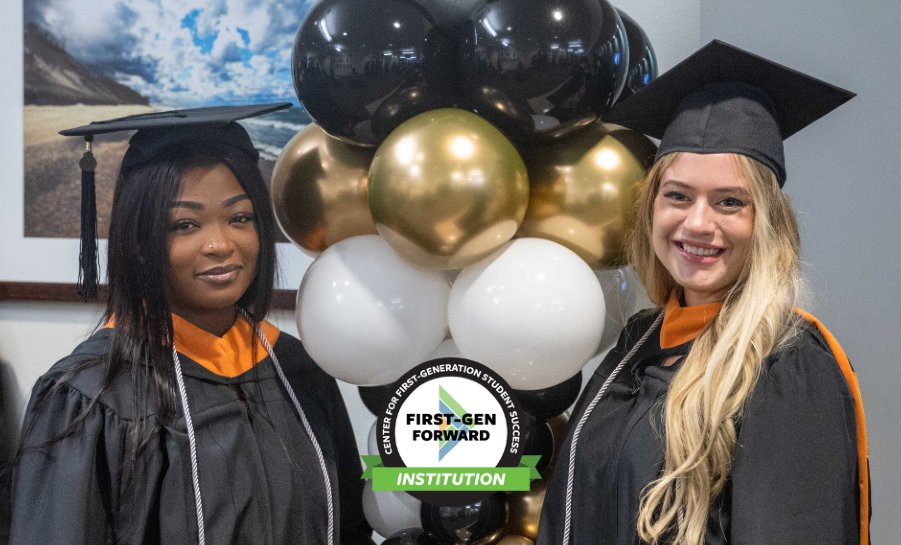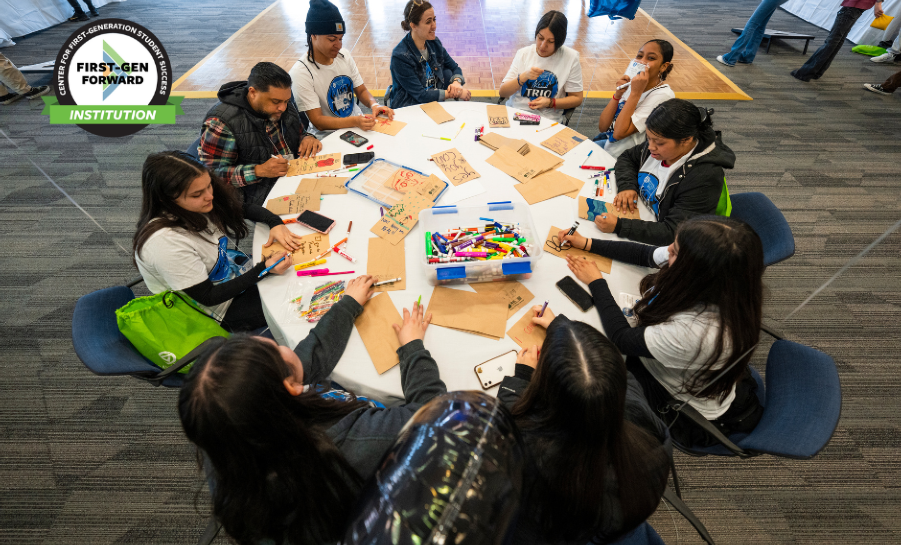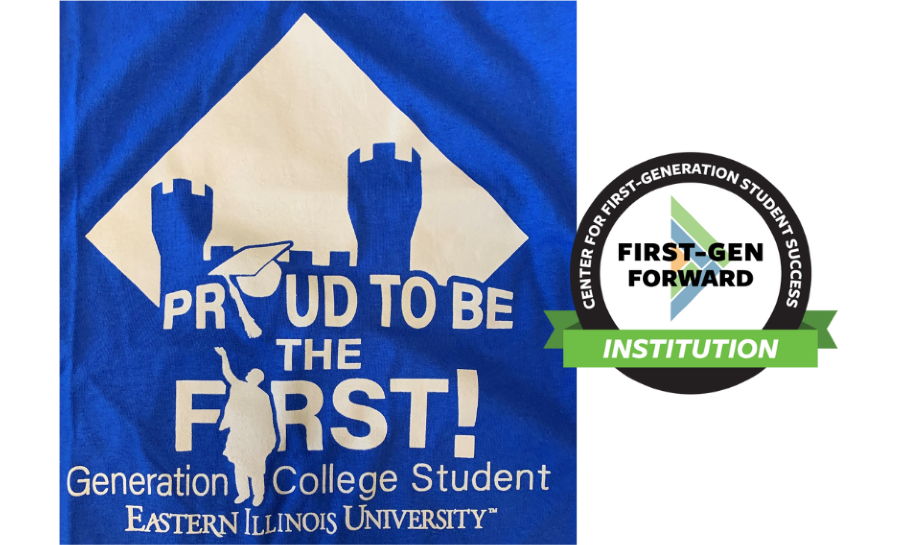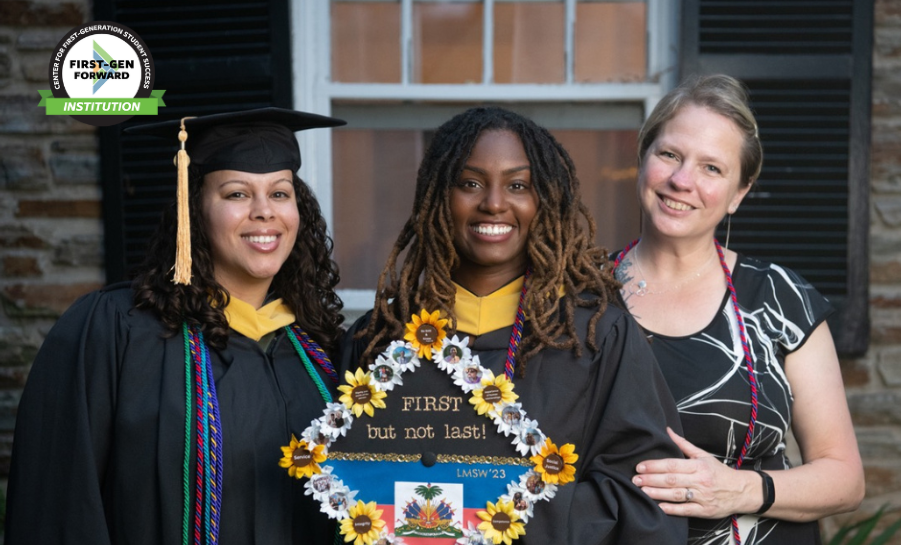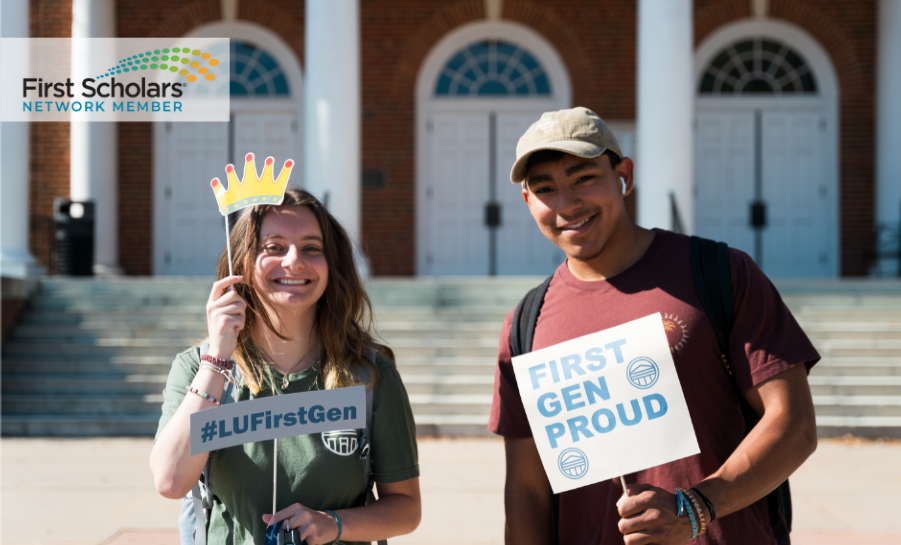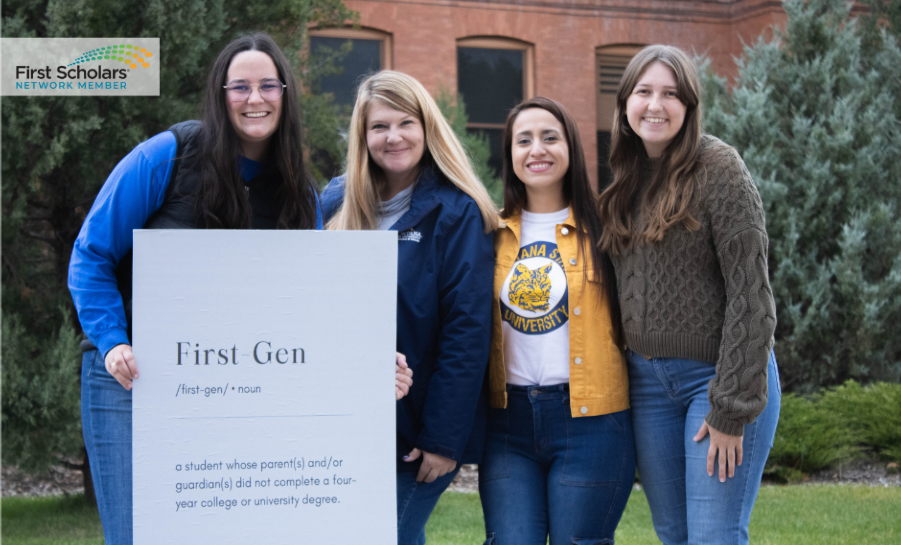From First-Generation Student to the President’s Cabinet
Gina O'Malley, Duquesne University / FirstGen Forward / November 25, 2024
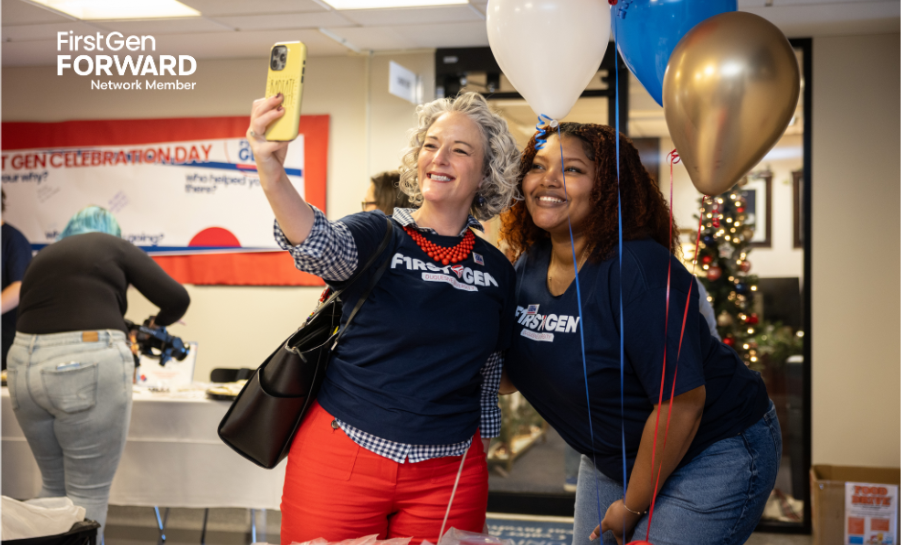
Dr. Leanna Fenneberg didn’t discuss college with her family growing up. Her older siblings joined the military after high school, and her father was a factory worker in their small town of Stoughton, WI.
Now the senior vice president of student life at Duquesne University (Duquesne), she reflects on her college application process as a first-generation student and sums it up in one word—overwhelming.
“I was overwhelmed in so many ways: financially, academically and socially,” she said. “I didn’t know what questions to ask, and I felt rudderless navigating the systems that seemed so easy for my classmates.”
Duquesne’s Executive Vice President and Provost Dr. David Dausey agrees. Also a first-generation student, he enjoys building enduring connections with those who are blazing paths similar to his own.
“I greatly appreciate and understand what it means to be the first person in your family to do something,” he said. “It is a feeling of fear and uncertainty coupled with a strong sense of accomplishment. I approach first-generation students knowing they might feel both of those things, and I want them to know I empathize with them and want to do everything in my power to help them succeed.”
First-generation students who advance to leadership roles within colleges and universities not only show what’s possible—they create a supportive environment that’s mindful of the unique challenges faced by first-generation students and model skills that serve students throughout their lives.
Driven by compassion and a sense of purpose, these university leaders advocate for resources and policies to benefit first-generation students and strive toward an inclusive campus culture to maintain a sense of belonging and support, despite the barriers first-generation students may face.
“As a first-gen student, I didn’t understand basics of a college education. I didn’t know how to navigate choosing a major or the difference between general education, major and elective courses. I didn’t understand the importance of mentorship,” said Dausey. “For these reasons and more, I talk with first-generation students about the basics and answer questions they don’t feel comfortable asking in a public forum.”
According to a survey conducted by Inside Higher Ed, first-generation college students are significantly less likely than their continuing-generation peers to hold a leadership position in college (23% versus 41%). To bridge this gap, first-generation students at Duquesne benefit from examples set by university leaders who are willing to share their experiences and model work ethic, determination and resilience. They lead by example in their daily routines and rally around students, encouraging them to engage with—and lead—campus organizations so they gain experience that can set them up for future success.
“As a first-generation college student to Ph.D., and later a senior administrator, imposter syndrome has presented itself countless times throughout my educational and professional journey,” said Fenneberg. “I want first-gen students and professionals to know they are not alone, and they have tremendous potential to explore as they persevere through inherent challenges.”
Duquesne recognizes that challenges and uncertainty can remain beyond a student’s first year. Throughout a student’s journey, faculty and staff meet first-generation students where they are so they can realize their boldest goals. They walk alongside students to create community, add purpose to their aspirations, and provide support and resources every step of the way.
Examples include:
- Normalizing the experiences of first-gen students by promoting a sense of belonging, understanding and respect, and by celebrating accomplishments.
- Connecting with other students, faculty and staff who identify with their experience.
- Developing mentoring programs, support networks and resources.
- Connecting students and families with campus resources that can aid in their success.
- Facilitating clear, transparent financial aid conversations.
- Promoting student engagement in high-impact practices, such as access to paid internships, co-curricular involvement and learning, study-abroad opportunities, etc.
First-generation students who advance to leadership roles within colleges and universities not only show what’s possible—they create a supportive environment that’s mindful of the unique challenges faced by first-generation students and model skills that serve students throughout their lives.
Through these resources and the active presence of university leadership who understand and advocate for first-generation students, Duquesne fosters an environment where all students can achieve bigger goals, reach beyond what’s familiar and access a horizon-expanding education.
“It brings me great joy that both the executive vice president and provost and senior vice president of Student Life, among countless other faculty and staff leaders on campus, are first-generation college students,” said Fenneberg. “This personal experience, understanding and empathy fuel commitment at the highest level of leadership to support the personalized success of our first-generation students.”
